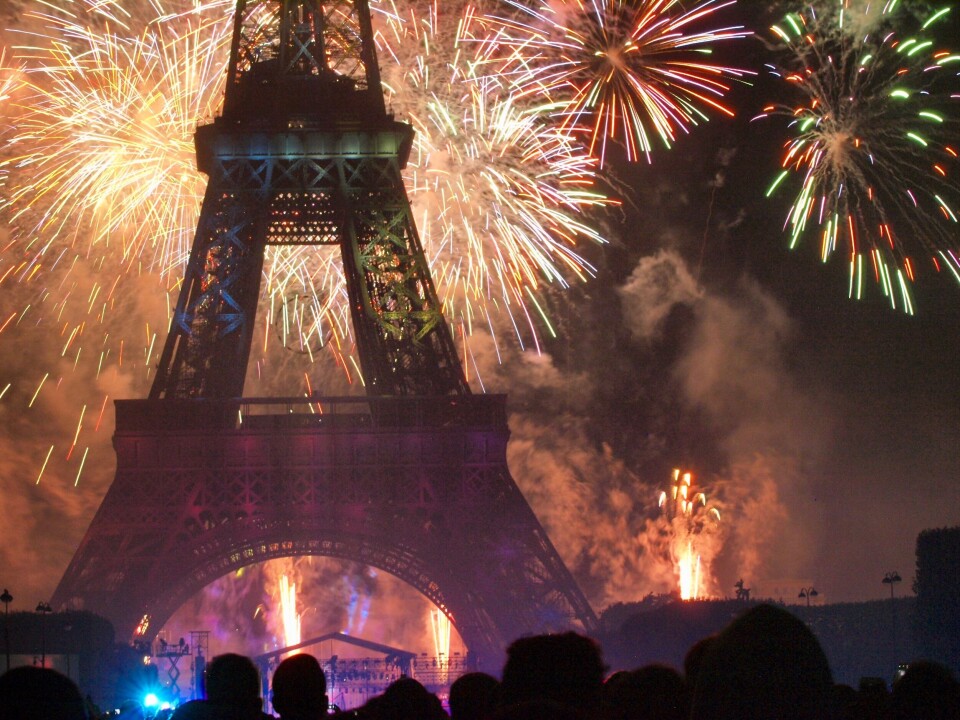-
Why supermarkets are urging shoppers to buy French leeks
Try our French classic leek vinaigrette recipe
-
New bill targets skiers under influence of alcohol or drugs
There are not currently any specific rules on skiing while under the influence
-
Paris airport to remove passenger drop-off zones near terminals
Travellers being taken to airport by family or friends will need to use shuttle bus or public transport to reach terminal
France bans fireworks for July 14 celebrations amid violence fears
Authorities are worried about a repeat of the violence after the death of Nahel, 17, during a police check in the Paris suburbs

Fireworks have been banned in France in the run-up to the July 14 Fête nationale celebrations amid fears over street violence.
The day, which is known as Bastille Day in English, is typically marked by parties, festivals, parades, and - normally - fireworks. In Paris, there are military displays and an aircraft flypast.
Read more: La Fête Nationale: 14 facts to know about le quatorze juillet
But this year, a decree published in the Journal Officiel on Sunday, July 9, states: “To prevent the risk of serious disruption of public order during the July 14 festivities, the sale, transportation, and use of pyrotechnic items and fireworks throughout the country are prohibited until July 15 inclusive.”
Only professionals working for public shows and local authorities will be allowed to buy fireworks.
On Saturday (July 8), Prime Minister Élisabeth Borne told Le Parisien the ban was part of “massive means to protect the public”.
The measure comes after riots erupted across France following the death of Nahel, a 17-year-old boy shot dead by a police officer in Nanterre.
Read also: Business, tourism, transport: What is cost of France’s recent riots?
Police fear that July 14 could provide a new opportunity for rioters to create “severe threats to public order”.
Authorities are also implementing other means of control, including:
-
More bag checks. There will also be a greater police presence at public events.
-
More seizures of suspicious items. authorities in Seine-Saint-Denis said they had seized a total of 918kg of firework-style weapons in three days last week, while the police prefect in Paris, Laurent Nuñez, said more than 1.5 tonnes had been seized in just 48 hours in the capital.
-
Increased internet tracking of sellers and rioters. Around 50 gendarmes have been assigned by le Commandement de la gendarmerie dans le cyberespace (ComCyberGend) to “anticipate calls to commit acts of violence", and "capture digital evidence" to apprehend the perpetrators. 50 projects have been identified so far, the head of ComCyberGend has said.
Police are also working to improve their enforcement of existing laws.
For example, it is already illegal to carry fireworks and similar items on public transport, but this is not always enforced.
Similarly, sellers are already required to have documents in place that prove their items conform to safety and environmental laws. Sellers are also already required not to sell to anyone who appears suspicious or who they suspect may use the product for negative purposes.
The law already states that the sale of "pyrotechnic articles to people who do not possess the specific technical knowledge or do not meet the age conditions…to acquire, hold, handle, or use them" is punishable by six months in prison, and a fine of €7,500.
Belgian border
There will also be more border checks from Belgium into France, as Belgium has less stringent laws on fireworks.
However, Paul-Olivier Delannois, mayor of Tournai, a Belgian border village 30km away from the French city of Lille, has also temporarily suspended the sale of fireworks and similar items, to help support France’s effort.
He told France 3: “It’s logical that if I closed my eyes to the fact that people might come here to get things to create disorder in France, that would be a failure of support and responsibility.”
Read more
Firefighters, fêtes and forms: Key dates to know this July in France
July 14’s military parade: out of date or respectful?
La Fête Nationale: 14 facts to know about le quatorze juillet
























